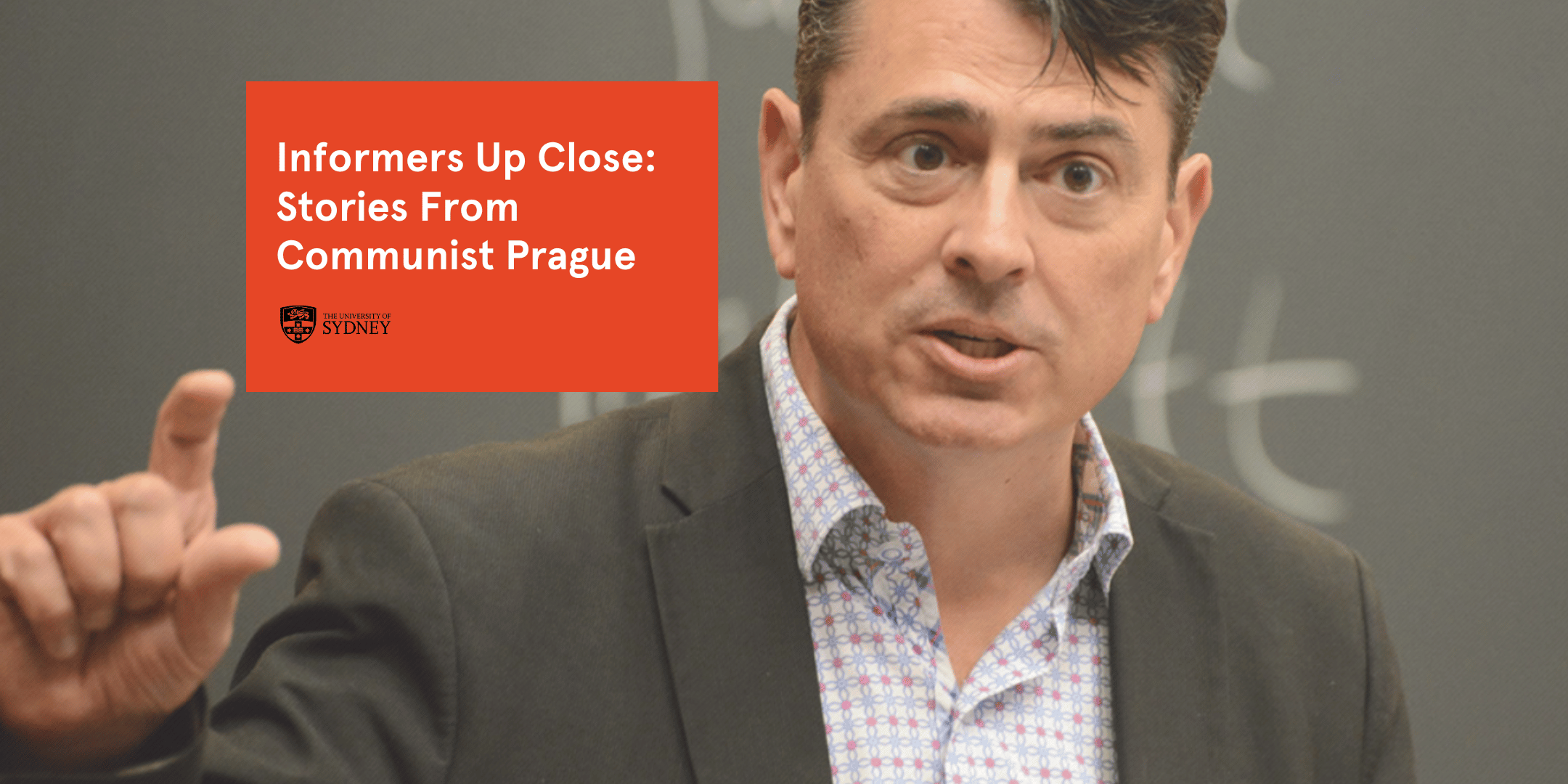
Informers Up Close: Stories From Communist Prague
Informers Up Close: Stories From Communist Prague
In-person event
Informers are generally reviled. After all, ‘snitches get stitches’. Informers who report to repressive regimes are particularly disdained. While informers may themselves be victims enlisted by the state, their actions cause other individuals to suffer significant harm. Informers, then, are central to the proliferation of endemic human rights abuses. Yet, little is known about exactly why ordinary people end up informing on—at times betraying—other people to state authorities. Through a case study of Communist Czechoslovakia (1945–1989) that draws from secret police archives, oral histories, and a broad gamut of secondary sources, this book unearths what fuels informers to speak to the secret police in repressive times and considers how transitional justice should approach informers once repression ends.
This book – co-authored with Barbora Holá — unravels the complex drivers behind informing and the dynamics of societal reactions to informing. It explores the agency of both informers and secret police officers. By presenting informers up close, and the relationships between informers and secret police officers in high resolution, this book centers the role of emotions in informer motivations and underscores the value of dignity and reconciliation in transitional reconstruction. This book also leverages research from informing in repressive states to better understand informing in so-called liberal democratic states, which, after all, also rely on informers to maintain law and preserve order.
About the author:
Mark A. Drumbl is the Class of 1975 Alumni Professor and Director, Transnational Law Institute, at Washington and Lee University. He has held visiting appointments and has taught intensive courses at law schools world-wide, including Queen’s University Belfast, Oxford University (University College), Université de Paris II (Panthéon-Assas), Free University of Amsterdam, University of Melbourne, and John Cabot University in Rome. His work has been relied upon by courts; he has served as defense lawyer in genocide trials; and has been an expert in litigation including on international terrorism, with the United Nations in matters involving child soldiers, and the drafting of a global convention to criminalize racist hate speech. Books include Atrocity, Punishment, and International Law (CUP, 2007), Reimagining Child Soldiers in International Law and Policy (OUP, 2012), and Informers Up Close: Stories from Communist Prague (OUP 2024, with Barbora Holá); and co-edited volumes Research Handbook of Child Soldiers (Elgar 2019, with Jastine Barrett); Sights, Sounds, and Sensibilities of Atrocity Prosecutions (Brill, 2024, with Caroline Fournet), and Children and Violence (Routledge 2024, with Christelle Molima, Mohamed Kamara et al).
Tuesday 30 April, 1-2pm AEST
Venue: Level 4, Common Room, New Law Building (F10), Eastern Avenue, Camperdown campus
CPD Points: 1
This event is proudly presented by the Sydney Centre for International Law at The University of Sydney Law School.

